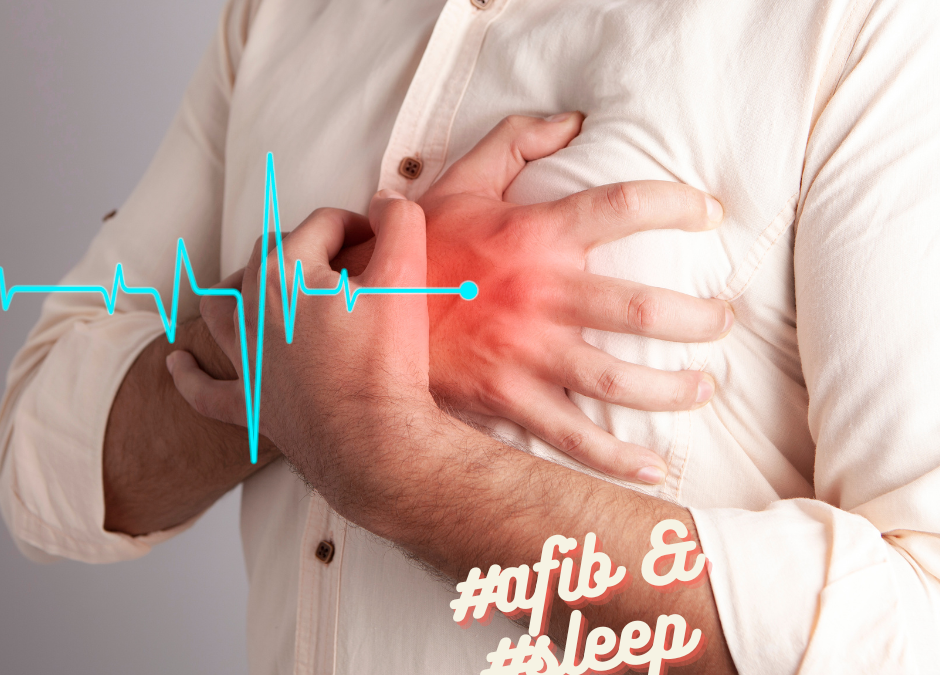Atrial Fibrillation
Did you know that atrial fibrillation and sleep apnea are connected? It is estimated that half of the patients with AFib also have sleep apnea. And patients with sleep apnea have four times the risk of developing AFib.
Sleep deprivation puts people of all ages at a greater risk for coronary heart disease and cardiovascular disease. You may believe that your heart is in good shape because your weight is under control, you’re a non-smoker and you exercise regularly. But, while all of these factors help lower your chances of developing heart disease, lack of sufficient sleep is detrimental to heart health, and if you don’t get enough sleep you need to do something about it. Here’s some information on how sleep affects your heart.
- A healthy heart needs sleep. During a good night’s sleep, both your heart rate and blood pressure go down giving your hard-working heart a rest. Shortened sleep is not long enough for this essential lowering to take place and may eventually lead to higher daytime blood pressure.
- People with sleep deprivation have a heart rate that stays elevated. It’s as if the sleeper has a high stress level.
- Shortened sleep disrupts the metabolism of glucose and can lead to increased insulin resistance, a risk factor for both heart disease and type 2 diabetes.
- Not enough sleep can produce an increase in C-reactive protein (CRP) which is released when inflammation and/or stress are present.
- Studies have found a link between shortened sleep and increased calcium deposits in coronary arteries.
Over time, untreated sleep apnea can lead to the onset of risk factors such as hypertension and diabetes that predispose a person to AFib. Effective treatment of both sleep apnea and AFib is the best way to manage symptoms of both conditions.
While treating sleep apnea may not completely get rid of your AFib, having reduced symptoms of Obstructive Sleep Apnea has been linked to better success rates in treatments for AFib. Continuous positive airway pressure (CPAP) therapy is a useful additional treatment to reduce the burden of atrial fibrillation.
Sleep Positions
There is no clear sleep position that is beneficial for atrial fibrillation. However, most AFib patients notice less symptoms while sleeping on their side.


